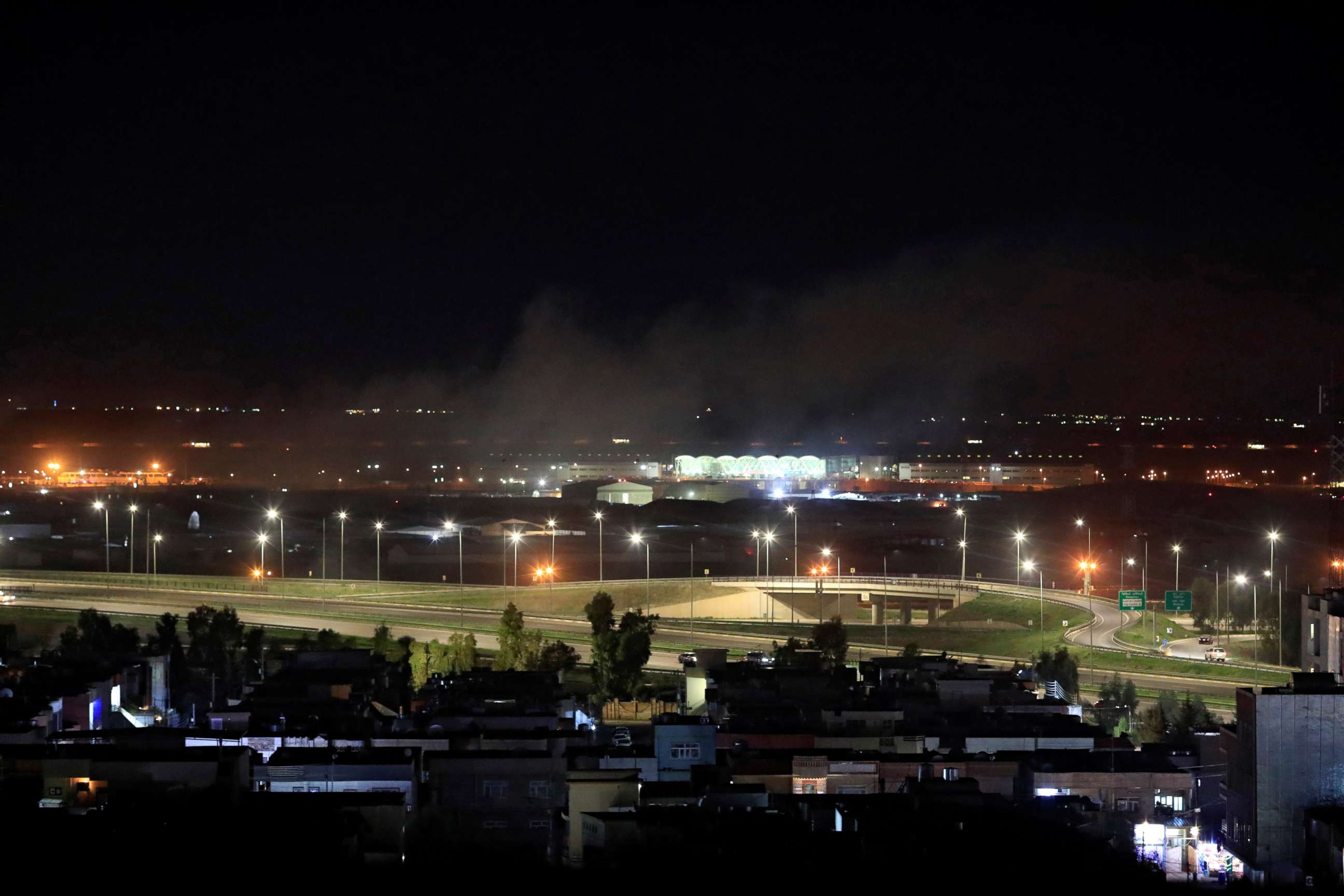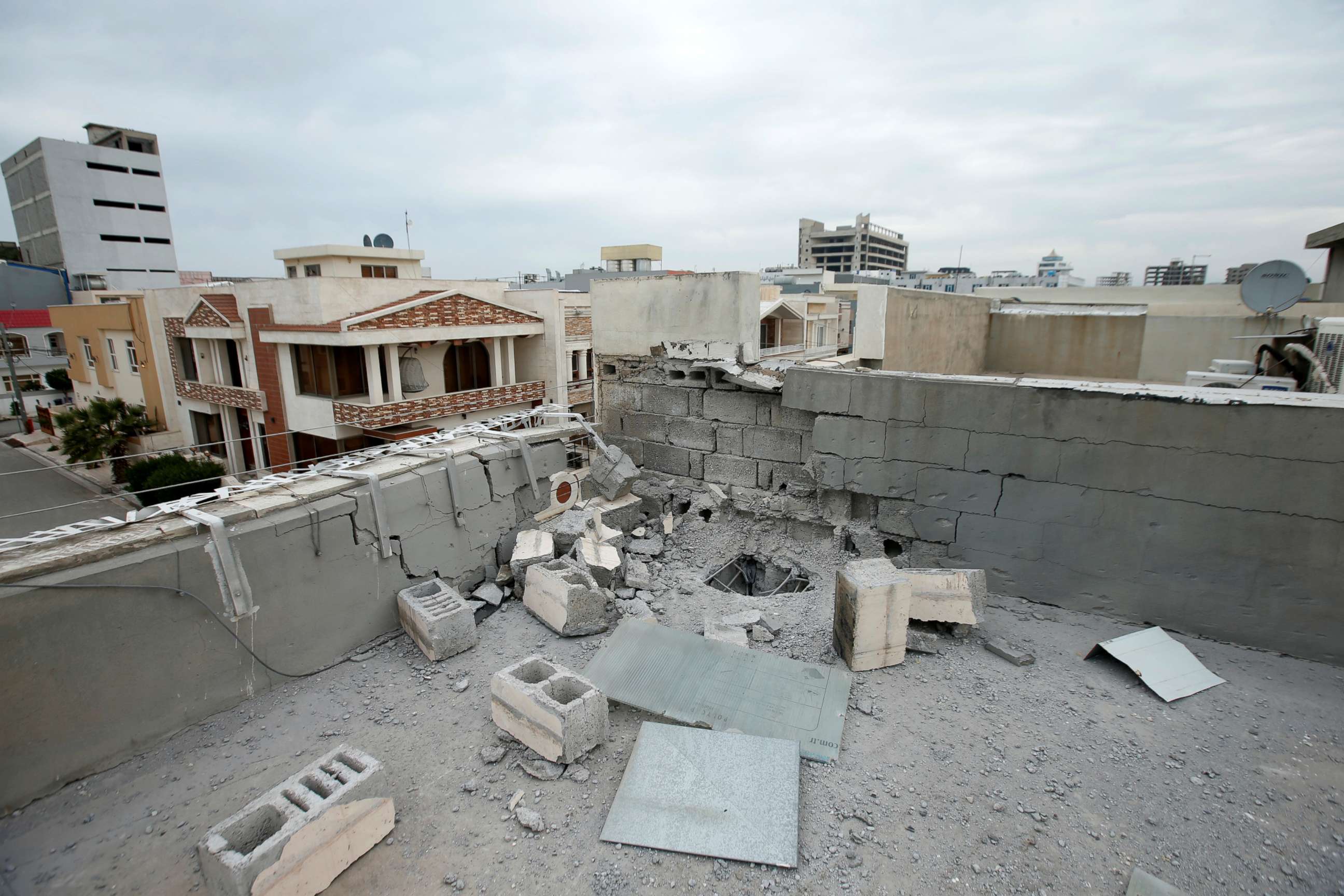Rocket attack on coalition base in Iraq kills contractor, injures US service member
A little-known Shiite militia group has claimed responsibility for the attack.
LONDON -- A rocket attack targeting the American-led military coalition in the northern Iraqi city of Erbil killed a civilian contractor and wounded nine others on Monday night, according to a coalition spokesman.
More than a dozen rockets were fired toward the Erbil International Airport in Iraq's semi-autonomous Kurdish region, with three directly hitting a military base housing foreign troops at the airport. The civilian contractor who was killed was not American, while eight other civilian contractors and one American service member were injured, according to U.S. Army Col. Wayne Marotto, spokesman for Operation Inherent Resolve, the American-led international military intervention against ISIS in Iraq and Syria.
U.S. Secretary of State Antony Blinken said earlier that one U.S. service member as well as "several American contractors" were among the wounded, citing "initial reports." He said he has contacted the prime minister of the Kurdistan regional government "to discuss the incident and to pledge our support for all efforts to investigate and hold accountable those responsible."
"We are outraged by today’s rocket attack in the Iraqi Kurdistan Region," Blinken said in a statement Monday night. "We express our condolences to the loved ones of the civilian contractor killed in this attack, and to the innocent Iraqi people and their families who are suffering these ruthless acts of violence."

The Kurdistan region's prime minister, Masrour Barzani, said via Twitter that he spoke with Blinken about the "cowardly attack" and that they "agreed to coordinate closely in the investigation to identify the outlaws behind it."
A source at the Iraqi Ministry of Interior confirmed to ABC News that three missiles fell near Erbil International Airport.
Several rockets landed in other areas of Erbil, the capital of the Kurdistan region. Another source told ABC News that missiles struck the affluent Waziran neighborhood, where some foreign consulates are located.

The Iraqi Ministry of Interior released a statement early Tuesday, saying authorities -- in coordination with coalition forces -- had located the vehicle from which the barrage of rockets were fired on a street between Erbil and the town of Gwer. The attack killed one person and injured five others at Erbil's airport while wounding three people elsewhere in the city, in addition to damaging several homes and businesses, according to the ministry.
"Ongoing investigations will definitively confirm who are the culprits behind the attack, and we assure the people of Erbil and the Kurdistan Region that all those involved will be held accountable and brought to justice," the ministry said in the statement.
According to SITE Intelligence Group, a company that tracks extremist groups, a little-known Shiite militia group that calls itself the Guardians of Blood Brigade claimed responsibility for the attack on Monday night, saying in a statement: "We renew the pledge to our patient people that we will please your eyes with avenging the blood of the martyred leaders, and the American occupation will not be safe from our strikes in any inch of the homeland, even in Kurdistan, where we promise we will carry out other qualitative operations."
ABC News' Conor Finnegan, Bader Katy, Cindy Smith and Sohel Uddin contributed to this report.




